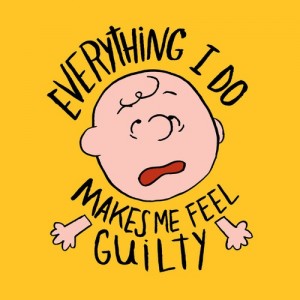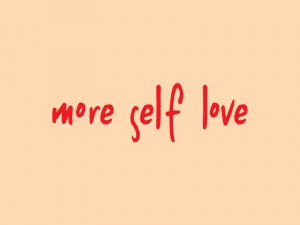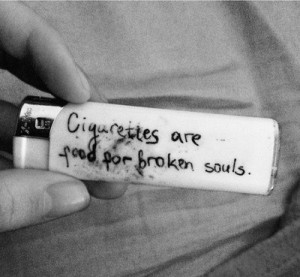Your relationship with guilt should be a healthy one. Guilt shouldn’t make you feel embarrassed or shameful. It should motivate you and correct you but not judge you. The greatest attribute about guilt is that it can be anticipated before any action needs to be taken. It urges you to think about the consequences of what you’re considering doing or will be saying. Not taking immediate reaction or retaliating does not mean that you’re a coward. 
An unhealthy relationship with guilt is like walking through a valley of eggshells and apologizing for every broken shell. It’ll make you so concerned for the wrong people around you that your own life will go un-lived. You should care for others but your thoughts and feeling matter also. Sometimes you’ll have to say no situations and people in life and you shouldn’t feel bad about that.
 I work with people that struggle with their overbearing feelings of guilt and shame. Some hold back from making extremely important life decisions out of fear for guilt that has not even taken place. Anything that keeps you from advancing or moving forward in life is something you have to let go of, regardless of the guilt that may or may not take place for having done so. Hypnosis is great for treating guilt prone minds because it diminishes the negative thoughts in your brain and helps you to think more rationally. This is helpful because it will help you to assess whether or not the guilt you’re feeling is necessary. If it is not, you’ll learn to cast the thought away and if it is, you’ll learn to spend less time torturing yourself and more time correcting your error.
I work with people that struggle with their overbearing feelings of guilt and shame. Some hold back from making extremely important life decisions out of fear for guilt that has not even taken place. Anything that keeps you from advancing or moving forward in life is something you have to let go of, regardless of the guilt that may or may not take place for having done so. Hypnosis is great for treating guilt prone minds because it diminishes the negative thoughts in your brain and helps you to think more rationally. This is helpful because it will help you to assess whether or not the guilt you’re feeling is necessary. If it is not, you’ll learn to cast the thought away and if it is, you’ll learn to spend less time torturing yourself and more time correcting your error.
What’s holding you back from making that final decision? What’s sitting so heavy in your heart that you cannot go about your daily life? Guilt doesn’t have to burden you, but if it does, come in for a session. I’d love teach you how to manage your guilt in a positive way.


 On the other side of the spectrum, some see something they want and experience resentment because it isn’t theirs. Their jealousy never forms into self-motivation. In fact, it becomes an all consuming fire. Their negative thoughts grow fixated on the things they don’t have, magnifying it to something incontrollable and bigger than themselves.
On the other side of the spectrum, some see something they want and experience resentment because it isn’t theirs. Their jealousy never forms into self-motivation. In fact, it becomes an all consuming fire. Their negative thoughts grow fixated on the things they don’t have, magnifying it to something incontrollable and bigger than themselves. Some people are unhappy because of a bio-chemical imbalance. Somewhere down the line, they’ve compromised themselves, or they’ve entered a structure (relationship, contractual agreement, or professional position) that has forced them to live a life that’s contrary to their inner self. These people could potentially suffer from mild, chronic, or acute unhappiness. Chronic unhappiness potentially directs its host to a life of avoidance by means of addiction while acute unhappiness forces its host into a world of depression.
Some people are unhappy because of a bio-chemical imbalance. Somewhere down the line, they’ve compromised themselves, or they’ve entered a structure (relationship, contractual agreement, or professional position) that has forced them to live a life that’s contrary to their inner self. These people could potentially suffer from mild, chronic, or acute unhappiness. Chronic unhappiness potentially directs its host to a life of avoidance by means of addiction while acute unhappiness forces its host into a world of depression. Addiction, contrary to what is thought, can be a learnt behavior. In a family where words are kept behind glasses of Bourbon, there’s a chance drinking could occupy the space reserved for conversation. Drugs are used for coping with the stress of family, work, identity, and everyday life. Addictions are a physical manifestation of an inner mewing. For many addicts, the use of drugs was a form of self-medication, but mutated into self-mutilation.
Addiction, contrary to what is thought, can be a learnt behavior. In a family where words are kept behind glasses of Bourbon, there’s a chance drinking could occupy the space reserved for conversation. Drugs are used for coping with the stress of family, work, identity, and everyday life. Addictions are a physical manifestation of an inner mewing. For many addicts, the use of drugs was a form of self-medication, but mutated into self-mutilation. We forget that trends and fads are not static; they are in a mystifying, ever changing waltz. This dance is choreographed by lionized opinions from people we may never meet. Fads and trends tell us what to eat, who to date, what to wear, and what is and is not socially acceptable, for the moment. There’s no way to truly “be yourself” if the self you are molding is constantly shaped by the opinions and decisions of others. The problem with living someone else’s version of you is that we are not one size fits all personalities. What works for one person, might not work for another. We set ourselves up for a miserable life when we try to tailor, or hem, who we are so people will like us, society will be pleased with us, the church won’t judge us, and our friends will accept us.
We forget that trends and fads are not static; they are in a mystifying, ever changing waltz. This dance is choreographed by lionized opinions from people we may never meet. Fads and trends tell us what to eat, who to date, what to wear, and what is and is not socially acceptable, for the moment. There’s no way to truly “be yourself” if the self you are molding is constantly shaped by the opinions and decisions of others. The problem with living someone else’s version of you is that we are not one size fits all personalities. What works for one person, might not work for another. We set ourselves up for a miserable life when we try to tailor, or hem, who we are so people will like us, society will be pleased with us, the church won’t judge us, and our friends will accept us.